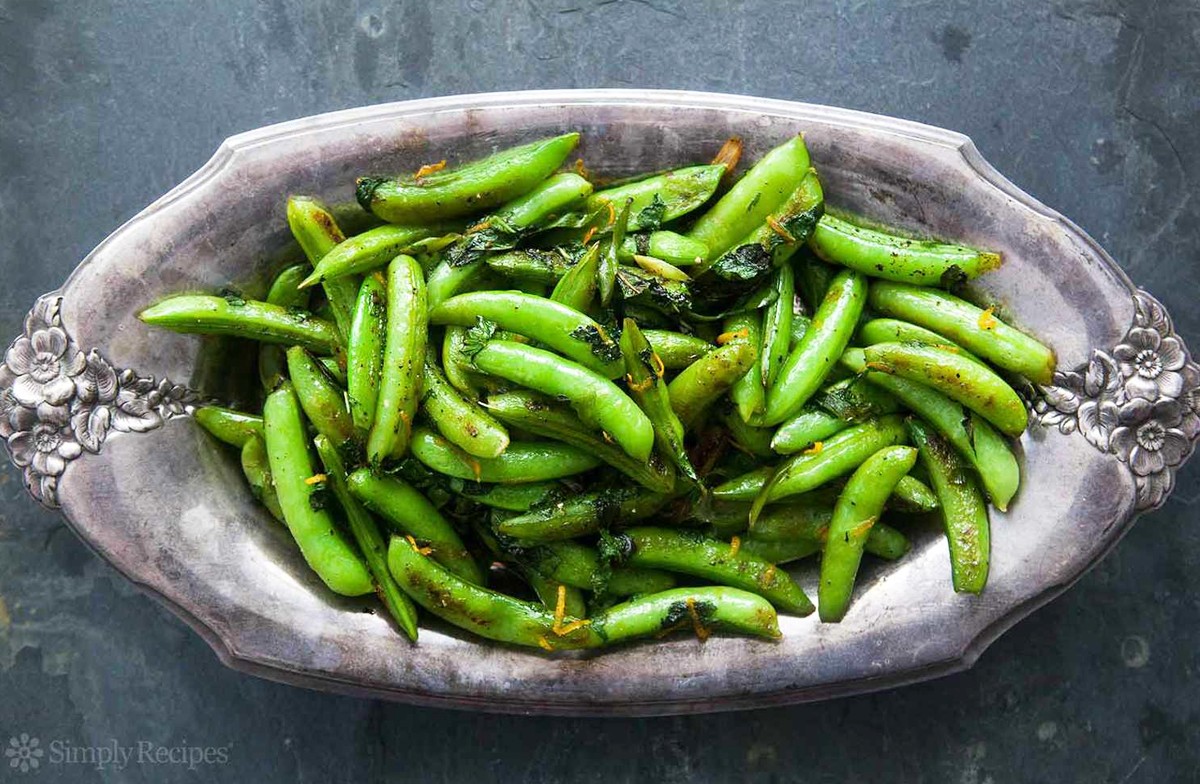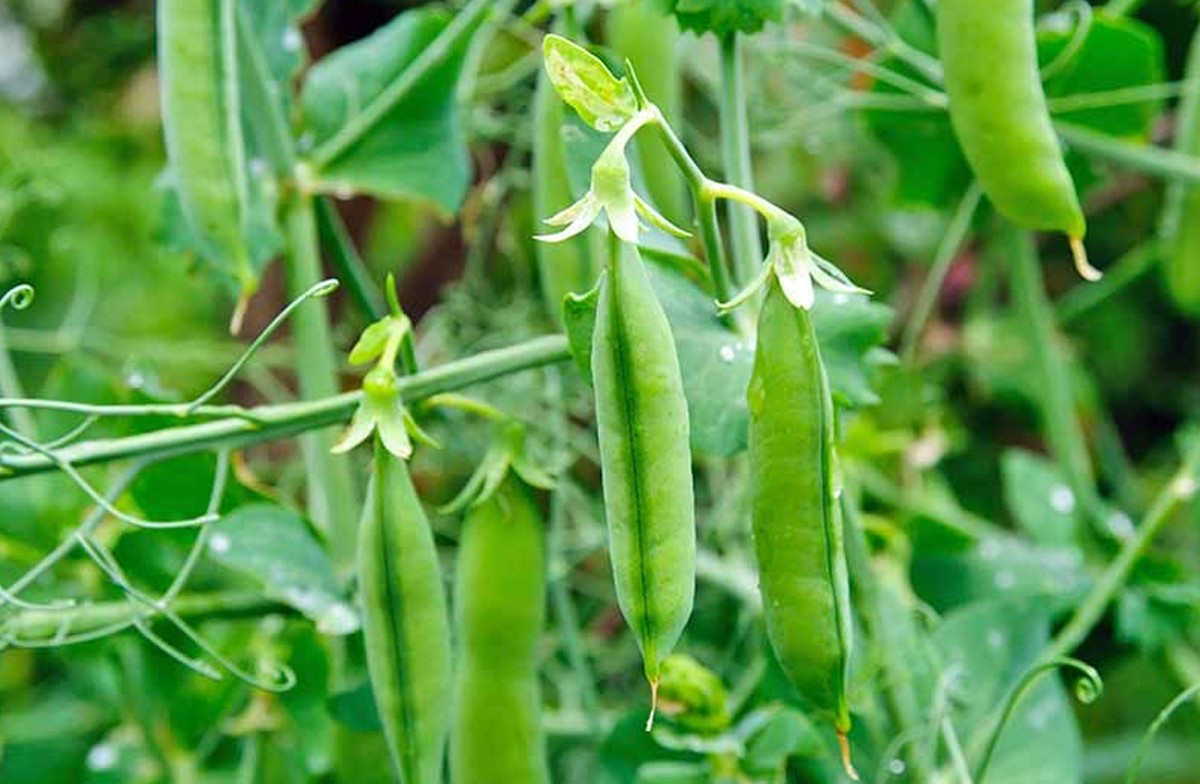Pea
Pea (Pisum sativum) is a popular garden plant that belongs to the legume family Fabaceae. It is an annual plant that can grow up to 2 meters in height and produces edible seeds that are commonly known as peas.
Pea has compound leaves with oval-shaped leaflets that grow in pairs, and they produce white or pink flowers. The flowers are self-fertile, meaning that they can pollinate themselves, but they are also often pollinated by bees.
Pea is commonly grown as a food crop, and it is also used as a model organism in genetics research. In fact, Gregor Mendel, the father of modern genetics, conducted his famous experiments on pea plants in the 19th century. His work helped to establish the laws of inheritance that form the basis of modern genetics.
Pea is sweet and neutral, selectively targets spleen, stomach and large Intestine energy channel.
In natural health, peas are believed to have the functions of clearing heat and toxins, promoting diuresis and reducing swelling, nourishing Qi and blood, and so on. They are often used to treat conditions such as fever, thirst, edema, and anemia.
Peas are also considered a nutritious food source in natural health and are used in dietary therapy to supplement the body with necessary nutrients. For example, peas can be cooked with other herbs and foods to tonify the spleen and stomach, improve digestion, and enhance physical strength.
Peas Nutritional Benefits
Peas are a nutritious food that are rich in a variety of vitamins, minerals, and other beneficial compounds. Some of the nutritional benefits of peas include:
- Protein: Peas are a good source of plant-based protein, which is important for building and repairing tissues in the body.
- Fiber: Peas are a good source of dietary fiber, which can help improve digestive health and reduce the risk of chronic diseases such as heart disease and diabetes.
- Vitamins: Peas are a good source of several vitamins, including vitamin C, vitamin K, and folate. Vitamin C is important for immune function and wound healing, while vitamin K is essential for blood clotting and bone health. Folate is important for DNA synthesis and cell growth and development.
- Minerals: Peas are a good source of several minerals, including iron, zinc, and magnesium. Iron is important for oxygen transport in the body, while zinc is important for immune function and wound healing. Magnesium is important for muscle and nerve function and bone health.
- Antioxidants: Peas contain a variety of antioxidants, including flavonoids, phenolic acids, and carotenoids. These compounds can help protect against oxidative damage in the body, which is associated with a variety of chronic diseases.
Overall, incorporating peas into your diet can provide a range of nutritional benefits and may help reduce the risk of chronic diseases.
Peas Pharmacology
Peas contain a variety of compounds that have potential pharmacological effects. Some of the key compounds found in peas and their potential pharmacological properties include:
- Flavonoids: Peas contain a range of flavonoids, including quercetin and kaempferol. These compounds have antioxidant, anti-inflammatory, and anti-cancer properties.
- Phenolic acids: Peas contain a variety of phenolic acids, including caffeic acid and coumaric acid. These compounds have antioxidant and anti-inflammatory properties and may help reduce the risk of chronic diseases.
- Carotenoids: Peas contain carotenoids, such as lutein and zeaxanthin, which have antioxidant properties and may help protect against age-related macular degeneration.
- Fiber: Peas are a good source of dietary fiber, which can help improve digestive health and reduce the risk of chronic diseases such as heart disease and diabetes.
Overall, the pharmacological properties of peas are likely due to the combined effects of these and other compounds found in the legume. However, more research is needed to fully understand the pharmacological effects of peas and how they can be harnessed for therapeutic purposes.
Who should eat peas
- People with weak digestion: Peas are considered easy to digest and can help strengthen the digestive system.
- People with Yin deficiency: Peas are considered a Yin-nourishing food that can help replenish the body's fluids and calm the mind.
- People with Qi deficiency: Peas are considered a Qi-tonifying food that can help improve energy levels and overall vitality.
- People with blood deficiency: Peas are considered a blood-nourishing food that can help improve blood circulation and reduce the risk of anemia.
- People with dampness or phlegm accumulation: Peas are considered a drying food that can help reduce excess dampness or phlegm in the body.
Who should avoid peas
- People with Spleen Qi deficiency: Peas are considered a relatively cold food in TCM, which means that they can be harder to digest and may weaken the Spleen Qi if consumed in excess. People with Spleen Qi deficiency may want to avoid eating large amounts of raw peas, or eating them in combination with other cold or raw foods.
- People with Yin excess: Although peas are generally considered a Yin-nourishing food in TCM, they can be slightly dampening in nature. People with Yin excess, or those who are prone to dampness or phlegm accumulation, may want to consume peas in moderation or avoid them altogether.
- People with a history of allergies: Peas are a common allergen and may trigger allergic reactions in some people. If you have a history of pea allergy or other legume allergies, it's best to avoid peas or consume them with caution.
In Person With Heshoutang Members
With Heshoutang Online Members
Fill Out the Questionnaire by yourself
When you subscribe to the blog, we will send you an e-mail when there are new updates on the site so you wouldn't miss them.


















Comments